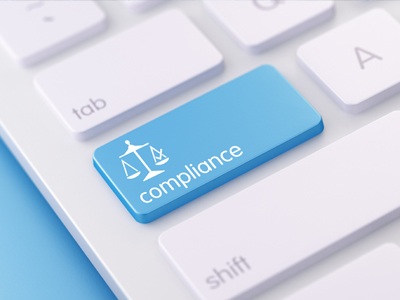Information governance and digital compliance have become integral for companies to gain visibility and gain control over valuable data. With the advent of more technologies, there’s bound to be more complicated digital compliance and information governance.
In the quest to meet future regulatory requirements, companies will have to adopt an investigative approach. More focus would revolve around data access and control to cut out user risks. The essence of information governance and digital compliance would still be to protect data against potential theft or breach. And speaking of data control, the proliferation of costs will also play an important role.
Importance of Information Governance and Digital Compliance
Today, it takes actionable intelligence to ensure flawless digital compliance and information governance. The future holds the same uniform standards but the compliance will be more comprehensive and layered. Data governance will continue to be a holistic tactic to manage organizational information. And how you shift controls, roles, processes, and metrics will translate into a vital business asset.
Despite the company size and industry, the need of the hour dictates holistic data governance and a digital compliance approach. It is the best way to streamline management processes, cut back on storage costs, and ensure digital compliance. Consequently, companies will be able to minimize legal risks around inconsistent managed information and become more agile.
Information Governance and Digital Compliance: The Past and Present Dictate the Future
In the next few years, organizational data complexity will reach its peak and that means a more comprehensive approach to ensure information governance and digital compliance. For instance, the employees’ data will need to be more trustworthy and accessible to make logical business decisions.
Today, data governance activities are generalized and companies shouldn’t expect anything less in the coming years. In fact, organizations should expect more split when it comes to data governance responsibilities to create a more manageable and interconnected holistic environment. It would be the best way to avoid compliance audits, lawsuits, or potential corporate mergers.
Information Governance and Digital Compliance: What Challenges You Can Expect?
1. Machine Learning and Big Data
Although machine learning and big data have opened up new business opportunities for companies, they also create more regulatory challenges. On one hand, companies use big data to contextualize an ocean of data in minutes and leverage predictive ML models to maintain flawless operations.
But more tech dominance brings more stringent digital compliance and information governance. For starters, how businesses integrate data from multiple sources can create issues. Organizations that utilize big data with underlying analytics models should have more robust and clear governance policies in place.
2. Lack of Consistency
If your business consistently tags a lot of information, make sure to have taxonomy of universal metadata. Simultaneously, you should establish an information classification protocol for different types of assets based on their importance. You should also develop a suitable retention management model for different business processes.
3. Lifecycle Management
Another major governance issue companies face revolves around lifecycle management. It may sound straightforward, but governance implementation requires a lot of data and asset management. Without centralization, your company will see data management inconsistencies across lifecycles.
In fact, this issue can lead to friction among groups and processes. When it comes to information governance, the last thing any business needs is data overlap. So, move towards an agreement that allows you to make a centralized, adjustable, and responsible governance model.
Your information governance and digital compliance framework should be tailored based on “your” business processes, scope, metrics, responsibilities, data management, and compliance requirements.
Final Thoughts
For 2022, many organizations are either in the process or plan to move their operations to the cloud. It’s the age of big data and data ballooning attracts more regulatory requirements all the time. Businesses now focus on more relevant insights to decide whether or not to keep accessible data in foreseeable future.
At the same time, it is vital “how” organizations share data with partners, suppliers, and stakeholders. The focus of attention for companies should be to devise a strategic framework that defines clear procedures and policies about sharing data with third parties in the digital space. This strategy can influence the entire governance process and ensure contractual obligations.
In the digital age, companies can’t afford to generalize or abandon their governance protocols. Instead, businesses should focus on a single and detailed information governance model to meet digital compliance and data governance objectives.



